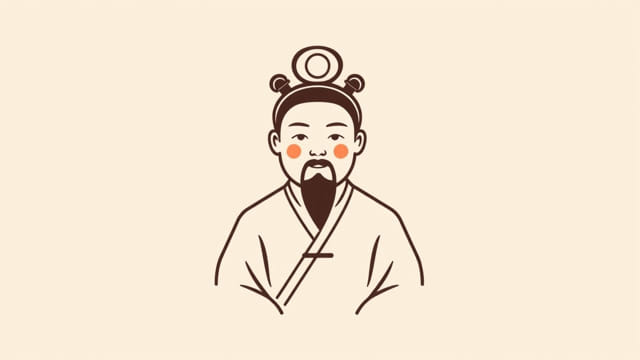Gaoshun is a historical figure whose identity has often been the subject of scholarly discussion and debate, particularly concerning whether he was a eunuch. The question of Gaoshun’s status as a eunuch is important because eunuchs played significant roles in various ancient Chinese courts, often serving as trusted advisors or wielding considerable influence. Understanding Gaoshun’s background helps clarify his role in history, shedding light on the social and political dynamics of his era. This topic explores the available evidence and perspectives about Gaoshun, examining the cultural context of eunuchs and their historical significance.
Who Was Gaoshun?
Gaoshun is known as a prominent figure in ancient Chinese history, often associated with the Han dynasty or the period of the Three Kingdoms, depending on various sources. His exact biography is not extensively detailed, but his presence in historical texts has sparked interest due to his close association with ruling elites or imperial courts. Understanding whether Gaoshun was a eunuch involves examining historical records, social roles, and the functions eunuchs fulfilled during his time.
Historical Context of Eunuchs in China
- Eunuchs often served as palace officials with close access to emperors and royal family members.
- They were castrated males, which made them unable to have children and theoretically less likely to form dynastic ambitions.
- Their roles ranged from caretakers and messengers to powerful political advisors.
- Eunuchs could accumulate significant influence, sometimes leading to political intrigues and factionalism.
Within this context, many figures with proximity to power have been examined to determine whether they were eunuchs, based on their roles and behavior in historical accounts.
Evidence About Gaoshun’s Status
The question Is Gaoshun a eunuch? arises because some historical texts mention him in capacities commonly associated with eunuchs, while other records remain silent or ambiguous on this matter. The evidence is mostly circumstantial and must be analyzed carefully.
Arguments Suggesting Gaoshun Was a Eunuch
- Association with the imperial court or royal household, a common setting for eunuchs.
- Roles involving confidential or intimate access to rulers, typical of eunuch officials.
- Historical references that use titles or terms often linked to eunuchs.
Arguments Against Gaoshun Being a Eunuch
- Lack of direct textual evidence explicitly stating his castration.
- Descriptions of Gaoshun engaging in military or administrative activities uncommon for eunuchs.
- Possible confusion or misidentification with other figures bearing similar names.
The absence of definitive proof means historians rely on contextual clues, interpretations, and comparisons with other known eunuchs.
The Role of Eunuchs in Political Power
Eunuchs were often controversial figures in Chinese history due to their unique social position. Their lack of family ties gave them access to the inner court, but also made them targets for suspicion and resentment by other officials. Understanding Gaoshun’s potential eunuch status involves recognizing how eunuchs influenced governance and court politics.
Functions of Eunuchs
- Personal attendants and trusted servants to the emperor
- Managers of palace affairs and internal security
- Political advisors and sometimes military commanders
- Patrons of art, culture, and religious institutions
If Gaoshun was indeed a eunuch, his role would likely fit into one or more of these categories, contributing to his historical significance.
Impact of Eunuchs in Historical Narratives
The presence of eunuchs like Gaoshun in historical accounts often reflects the complex power struggles of imperial China. Eunuchs sometimes served as scapegoats for political failures, while at other times they were credited for stabilizing or advancing the interests of the throne.
Common Perceptions of Eunuchs
- Seen as loyal servants or cunning manipulators, depending on the narrative
- Involved in palace intrigues and factional disputes
- Portrayed variably in literature and official histories
Whether Gaoshun was a eunuch may affect how historians interpret his actions and legacy.
Determining if Gaoshun was a eunuch remains challenging due to limited direct historical evidence. However, analyzing the context of eunuchs in ancient China, their roles, and the clues from historical texts allows for informed speculation. Gaoshun’s association with the imperial court and roles resembling those of eunuchs suggest it is possible, but not definitively proven, that he was one. Regardless, the discussion about Gaoshun highlights the broader importance of eunuchs in Chinese history, their influence on politics, and the enduring mystery surrounding many figures from that era. Understanding Gaoshun’s identity contributes to appreciating the complexities of ancient court life and power structures.
